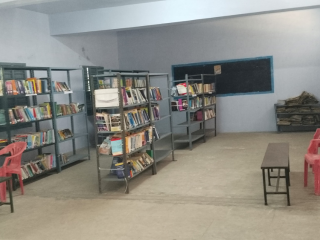Value-Added Courses - B.Ed.
To complement the B.Ed. programme and build well-rounded teacher competencies, the college offers the following value-added courses:

Personality Development
Builds self-confidence, communication, classroom presence, etiquette, and professional ethics—so student-teachers handle classes with poise and clarity.

Yoga & Meditation
Introduces simple asanas, breathing techniques, and mindfulness to improve concentration, reduce stress, and model healthy habits for schoolchildren.

Fundamental Course on Networking
Basics of computer networks, internet use, digital safety, and ICT integration—useful for smart classrooms, digital resources, and school IT coordination.

Gardening
Practical skills in campus greening, kitchen/Herbal gardens, and eco-club activities; supports project-based learning in Environmental Studies.

Typewriting
Improves keyboard accuracy and document formatting—useful for lesson planning, test paper preparation, and administrative tasks.

Library Management
Essentials of organizing, issuing, and maintaining books/resources; enables student-teachers to support school library periods and reading programmes.

How These Help You Teach Better
- Enhance classroom delivery, time management, and wellbeing.
- Strengthen ICT readiness and documentation skills.
- Enable co-curricular leadership (eco-club, reading club, life-skills).
- Make you more employable and school-ready from day one.

Internship
The internship programme is a vital component of the B.Ed. curriculum, designed to provide real-time teaching experience and bridge the gap between theory and practice. At Thirumalai Srinivasa College of Education, internships are conducted in partnership with reputed schools to ensure that student-teachers gain exposure to diverse classroom environments and teaching methodologies.

Objectives
- To help student-teachers apply pedagogical theories and methods in actual classroom situations.
- To develop effective lesson planning, classroom management, and assessment skills.
- To encourage innovation in teaching and the creation of interactive learning experiences.
- To build professional relationships with students, colleagues, and school administrators.

Structure of the Programme
- Duration: 80 working days during the third semester.
- Observation Phase: One week of observing regular school teachers to understand class management, lesson flow, and student engagement.
- Intensive Teaching Practice: 16 weeks of teaching practice, including:
- Delivery of at least 25 lessons.
- Lesson plan preparation and execution.
- Preparation and use of Teaching-Learning Materials (TLM).
- Conducting tests and evaluating student performance.
- Organizing and participating in school assemblies.
- Coordinating Parent-Teacher Association (PTA) meetings.
- Conducting case studies and psychological tests.

Supervision & Assessment
- Each student-teacher is visited and observed thrice by three different faculty members at regular intervals.
- Observations focus on subject knowledge, communication skills, time management, classroom interaction, and innovative teaching methods.
- On Saturdays, students return to the college for doubt clarification and guidance from faculty.
- After completion, Tamil Nadu Teachers Education University conducts a practical examination to assess lesson delivery, record work, instructional materials, EPC records, and online course completion evidence.

Expected Outcomes
- Demonstrate confidence in handling different classroom situations.
- Apply learner-centric and activity-based teaching methods.
- Show improved communication and interpersonal skills.
- Exhibit professional ethics, adaptability, and reflective practice in teaching.
